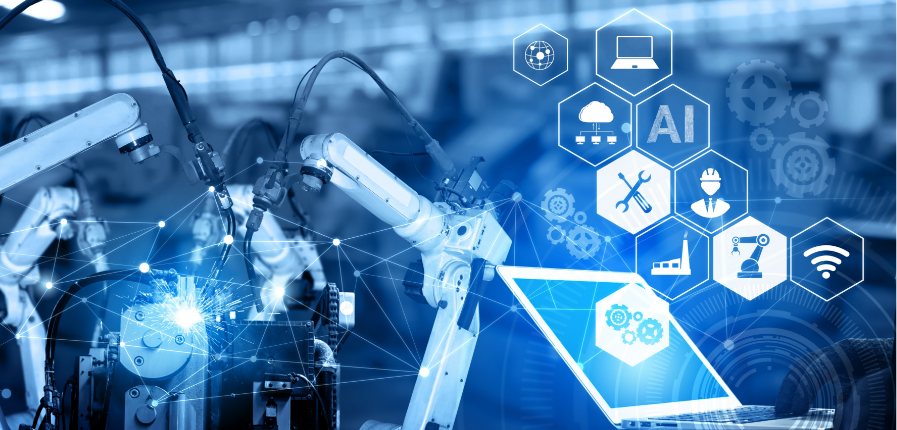Smart Factory
A smart factory, also known as a digital factory or Industry 4.0 factory, is a highly automated and connected manufacturing facility that leverages advanced technologies such as the Internet of Things (IoT), artificial intelligence (AI), and robotics to optimize the manufacturing process.
In a smart factory, all equipment, machines, and devices are connected to a central system, which can monitor and control their operations in real-time. This enables manufacturers to collect data on every aspect of the production process, such as machine performance, quality control, and supply chain management.
The data collected by smart factories can be analyzed using AI and machine learning algorithms to optimize production processes, detect anomalies, and predict equipment failures before they occur. This can help manufacturers reduce costs, increase efficiency, and improve the overall quality of their products.
Smart factories also use advanced robotics and automation to perform tasks that are typically done by human workers. For example, robots can be used for material handling, assembly, and packaging, freeing up workers to perform more complex tasks that require human expertise.
Another key feature of smart factories is the use of augmented reality (AR) and virtual reality (VR) technologies to support training, maintenance, and troubleshooting. Workers can use AR and VR tools to visualize complex systems and processes, simulate different scenarios, and perform maintenance and repair tasks more efficiently.
Overall, smart factories are transforming the manufacturing industry by enabling greater efficiency, flexibility, and agility, while reducing costs and improving quality.


